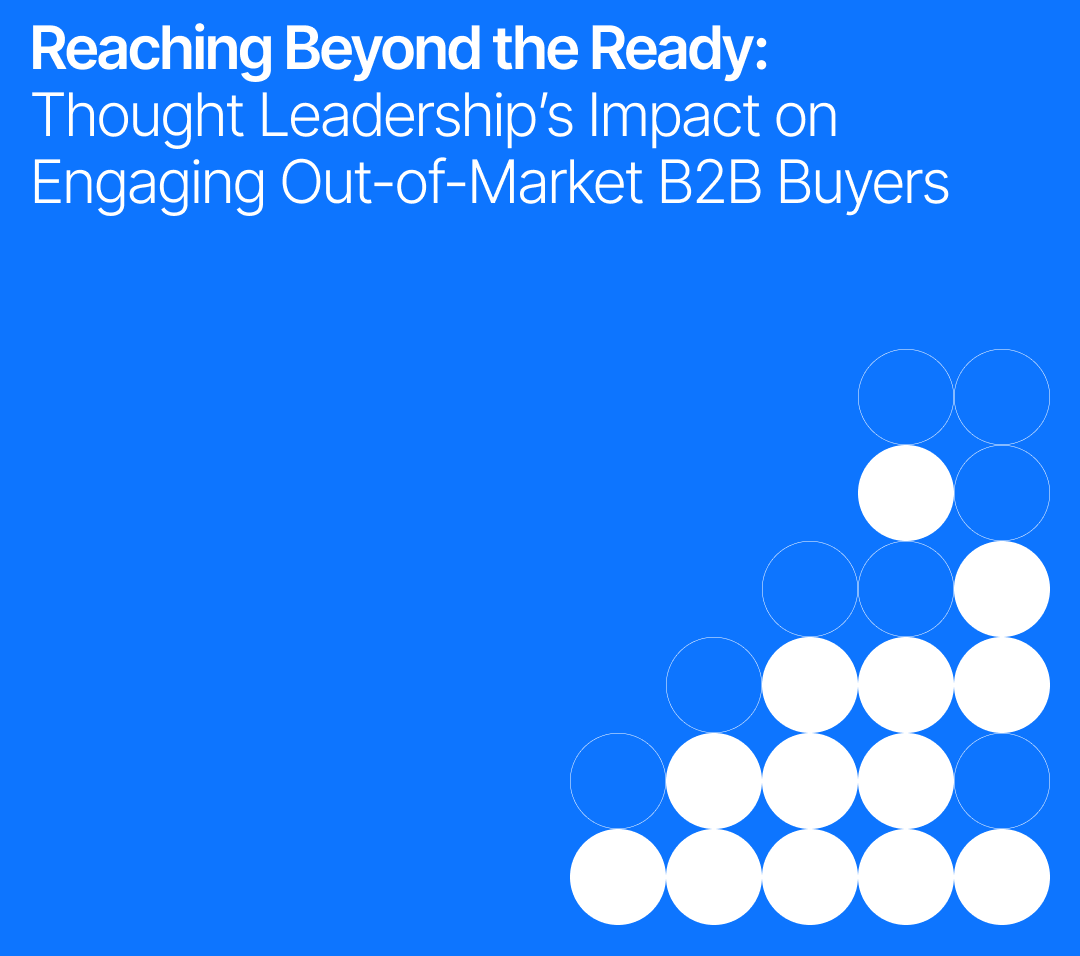Annie Dunleavy is a Senior Vice President and the U.S. Head of Content Strategy for Edelman Business Marketing. She specializes in helping B2B brands create and distribute content that furthers their business goals and engages their target audiences in compelling, innovative ways across earned, owned and paid channels, with a particular focus on thought leadership.
Empathy has long been considered a crucial skill for business leaders. Executives who can sense and take into account others’ feelings, and who possess other key components of emotional intelligence, are proven to be among the most effective. Empathy is also a must-have for companies seeking to design useful (and delightful) customer experiences, from products and services to the choreography of everyday customer interactions.
The just-released 2024 B2B Thought Leadership Impact Report adds an exciting new dimension to the importance of empathy in business. For our sixth annual study, created in partnership with LinkedIn, we surveyed nearly 3,500 management-level professionals across seven countries and found something surprising: Thought-leadership content that empathizes with business leaders’ challenges—and spurs them to rethink those challenges—can drive meaningful demand for your business’s products and services.
There are three key reasons for this:
- Executives trust thought leadership. An overwhelming 73% of B2B decision-makers say that an organization’s thought-leadership content is a more trustworthy basis for assessing its capabilities and competencies than its marketing materials and product sheets.
- Done well, thought leadership can prompt buyers to question the status quo. 75% of B2B decision-makers and C-suite executives say that a particular piece of thought-leadership content has led them to research a product or service they were not previously considering.
- Thought leadership can reveal previously untapped business opportunities. Among those who say that a piece of thought leadership has led them to research a product or service they were not previously considering, 60% said that the content made them realize their organization was missing out on a significant business opportunity.
The key for brands, then, is to produce thought leadership that doesn’t simply add more noise to an already crowded space but rather prompts buyers to wonder whether they could be doing things differently—or with different partners. Here are three key considerations for companies who want to create stronger, more empathetic thought leadership that stimulates demand for their business:
- Know your audience. Before you can create content that empathizes with your audience’s needs, you need to know what those are. What keeps them up at night? What’s currently exerting pressure on their business that your company can help alleviate? By taking the time to listen—whether by conducting one-on-one interviews or surveying your buyers on a larger scale—you’ll learn their pain points, what they care about, and the questions they’re asking, and can craft thought leadership that hits directly on those points.
- Don’t use jargon. It may be tempting to use niche, industry-specific terminology to show readers you know what you’re talking about. But that can easily backfire: if your readers don’t know those terms and can’t make sense of what you’re saying, you risk alienating them and giving a negative perception of your brand.
- Back up your perspective. B2B decision-makers say the highest quality thought leadership features strong research and data (according to 55% of decision-makers), helps them better understand their own business challenges and opportunities (44%), and offers concrete guidance and case studies (43%).
Thought leadership is a powerful tool for showing—rather than telling—your customers that you understand the challenges they’re facing. By empathizing with their needs, concerns, and aspirations, your company can craft thought leadership that drives meaningful engagement and demand for your business.
To learn more, see the full findings of the 2024 Edelman-LinkedIn B2B Thought Leadership Impact Report.







